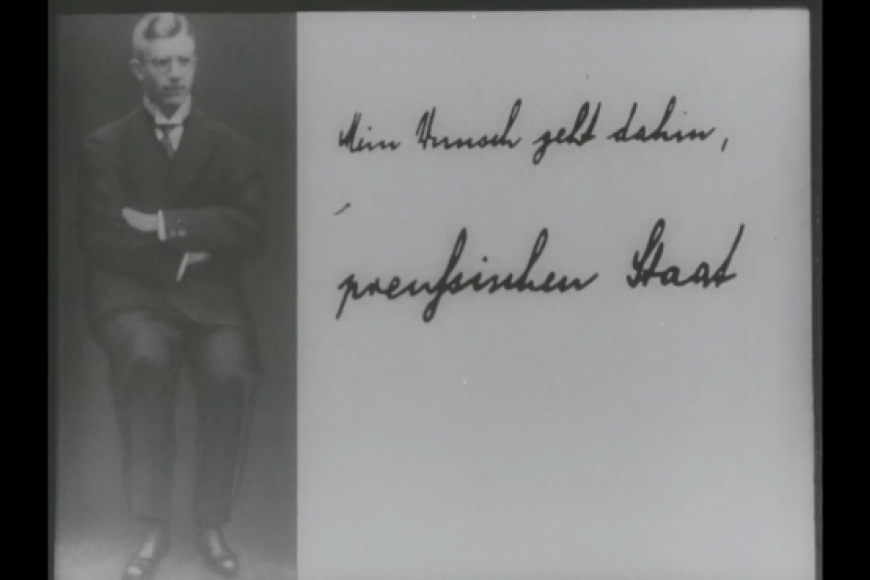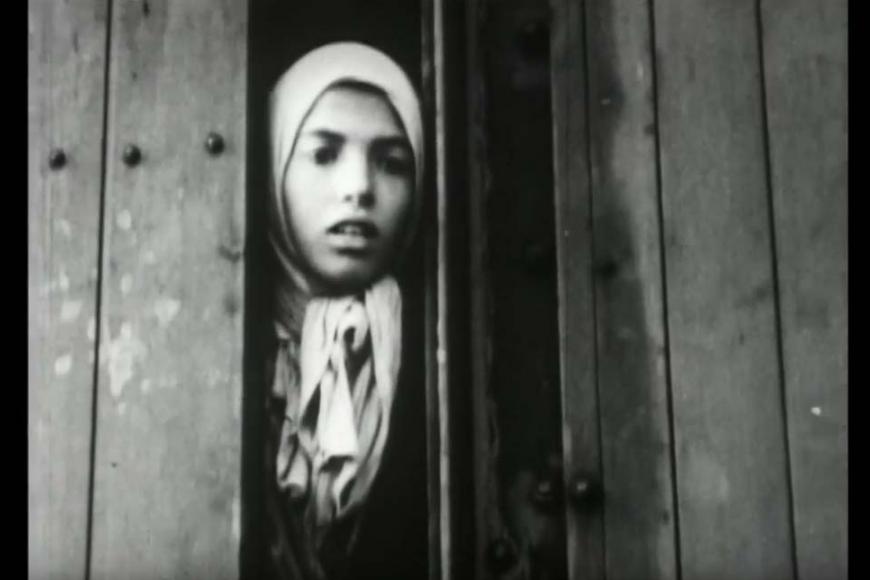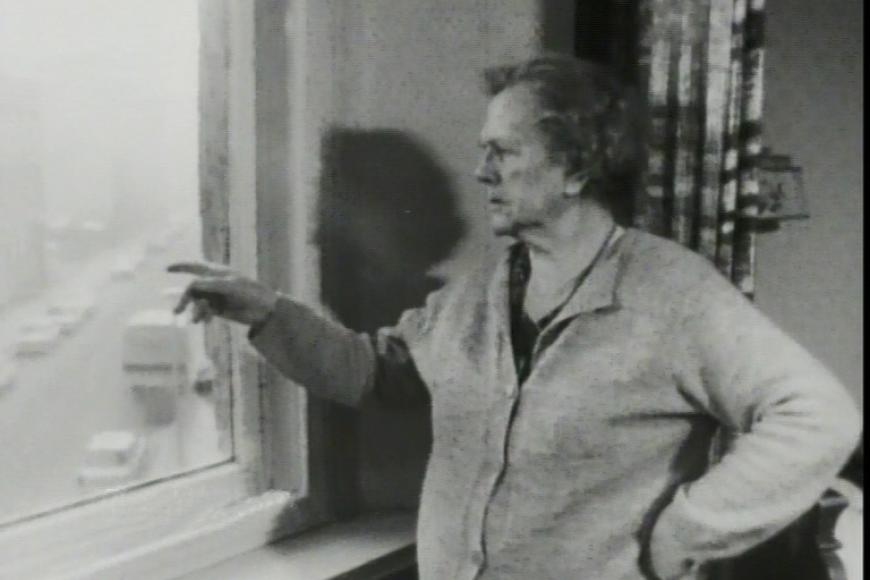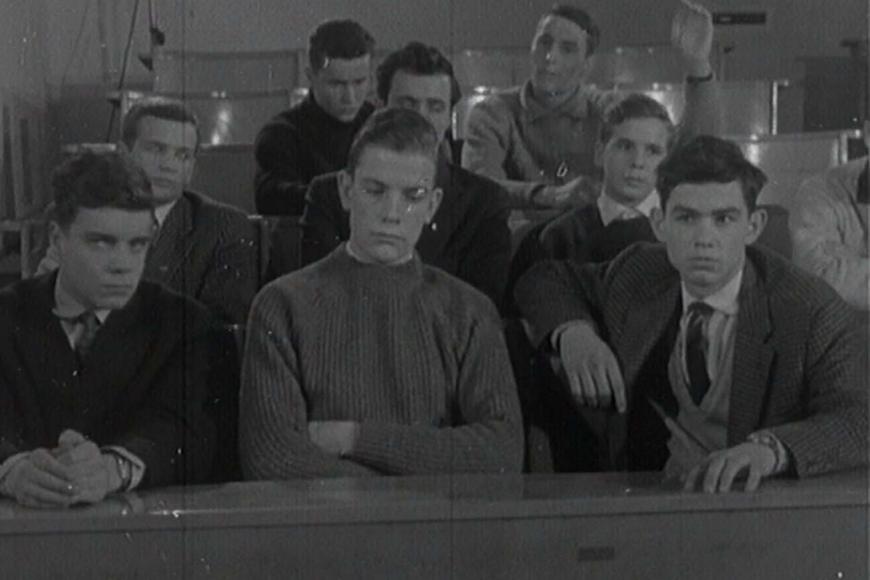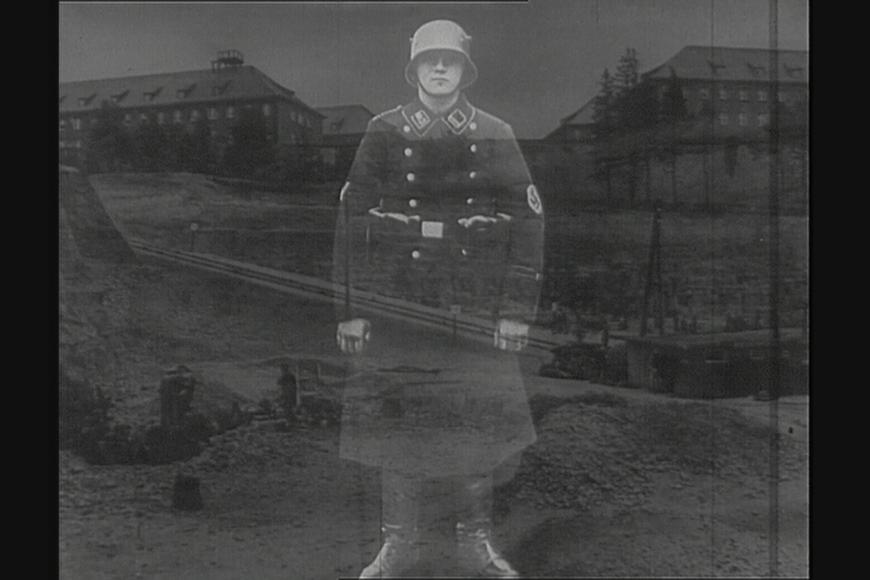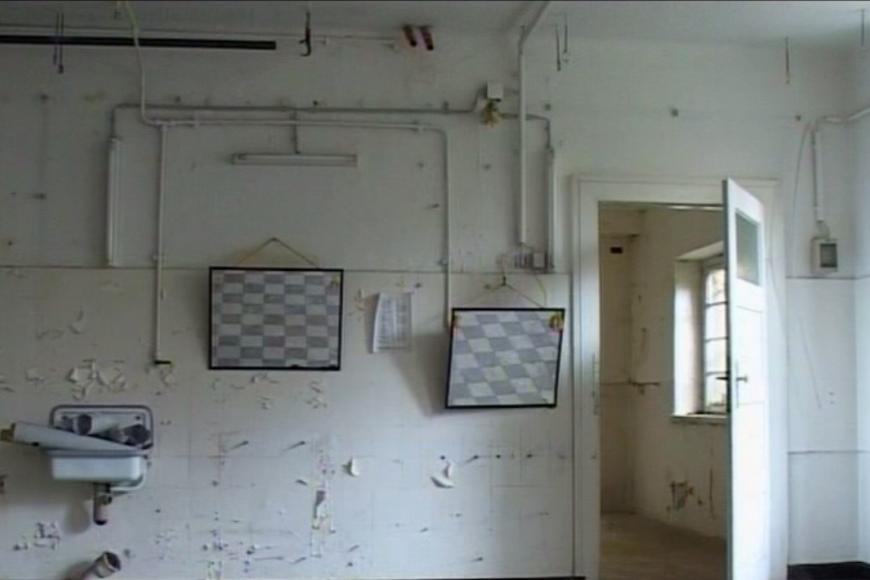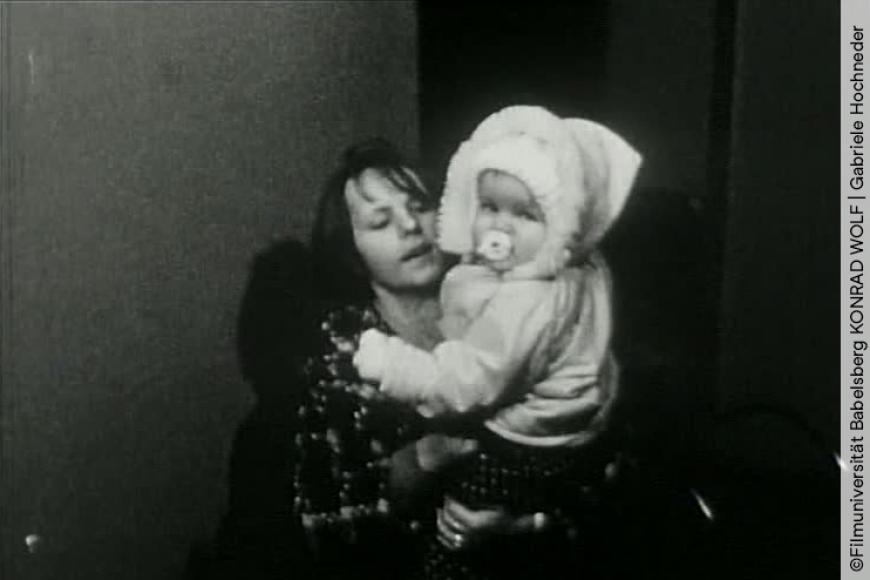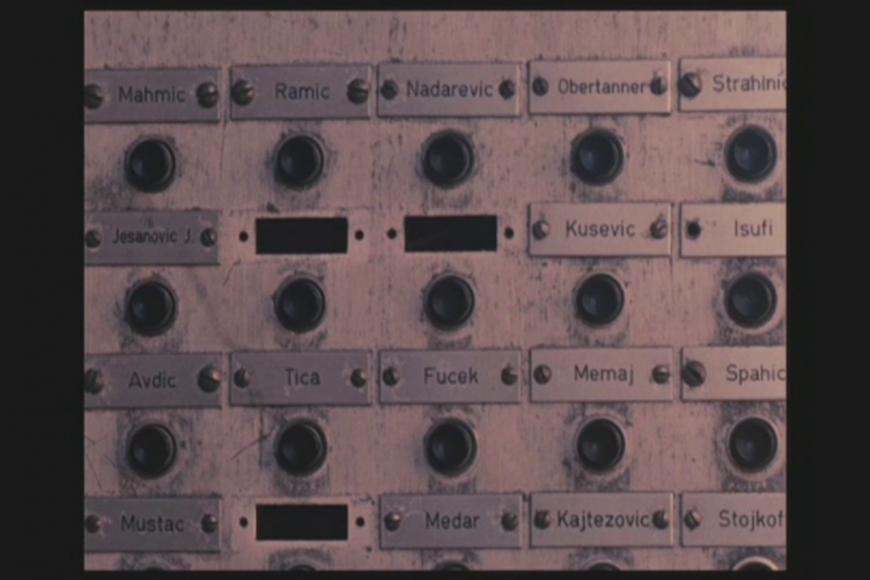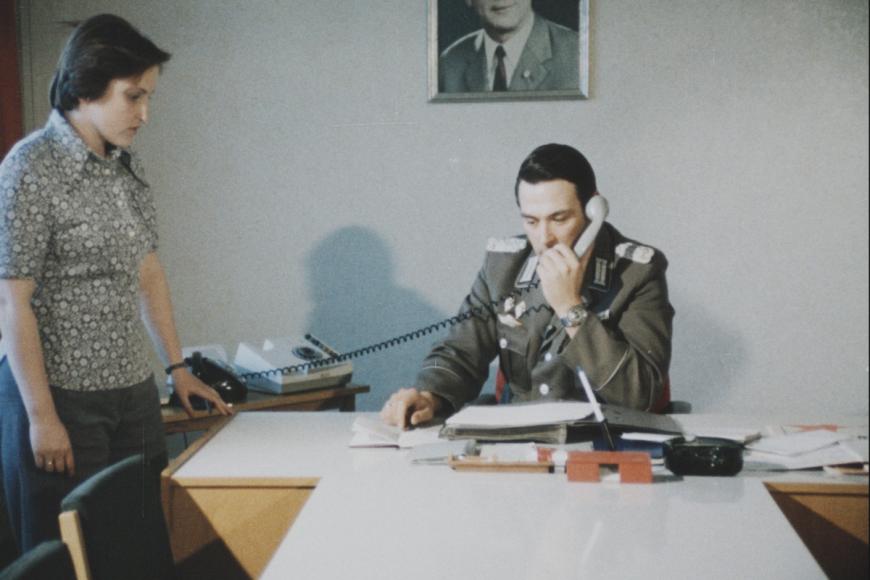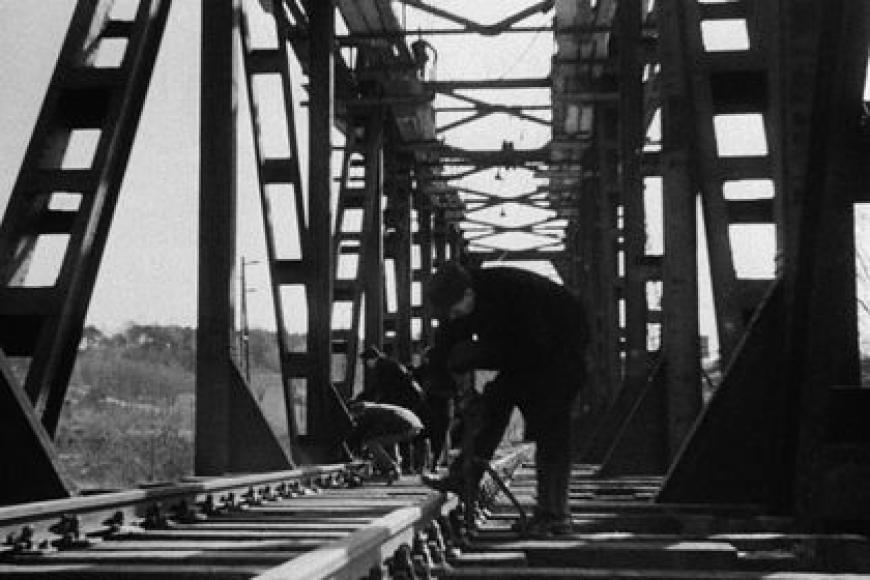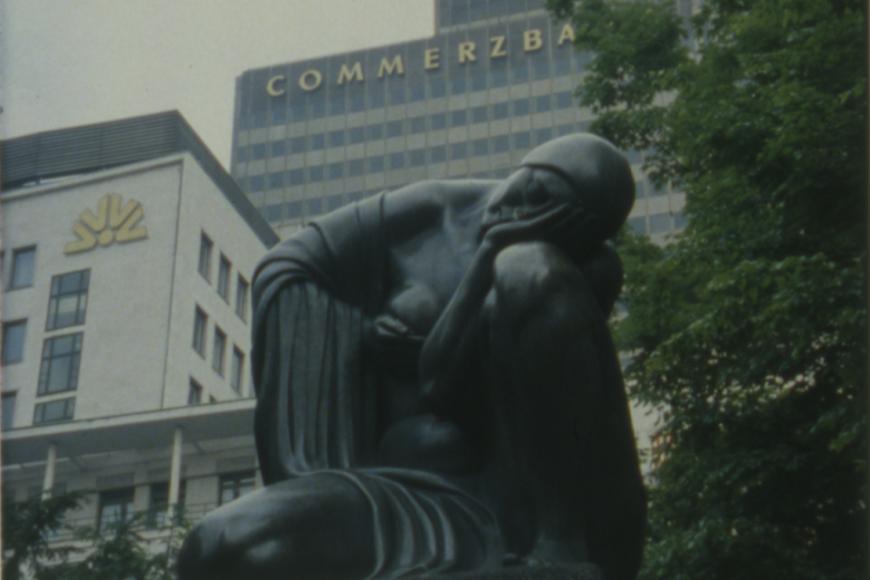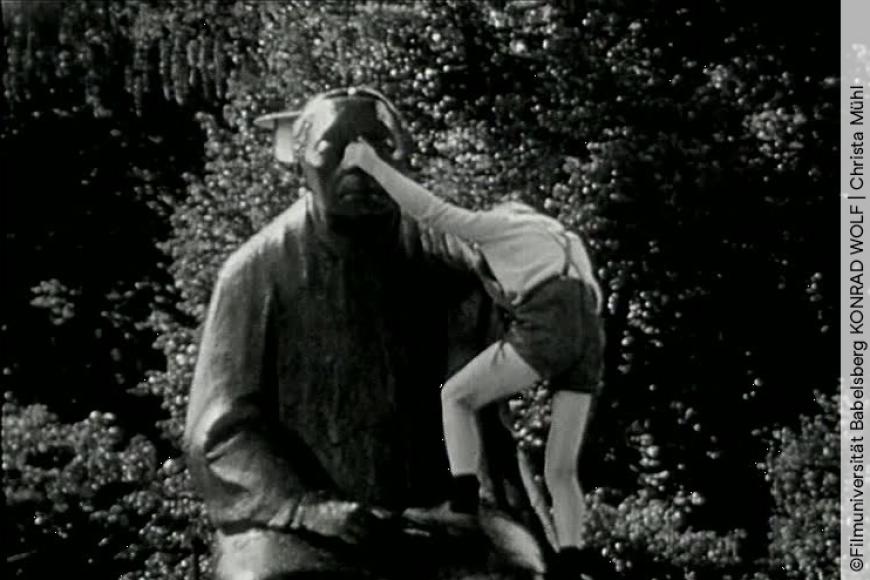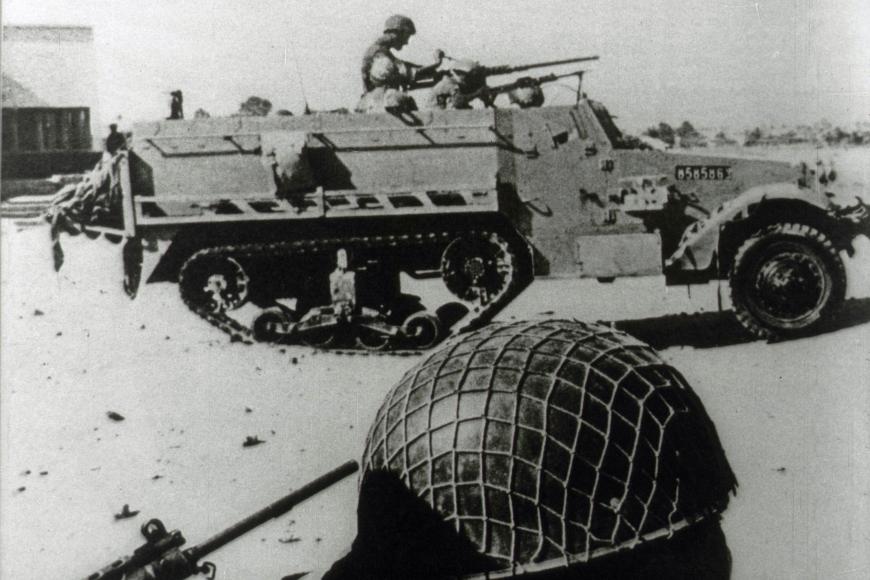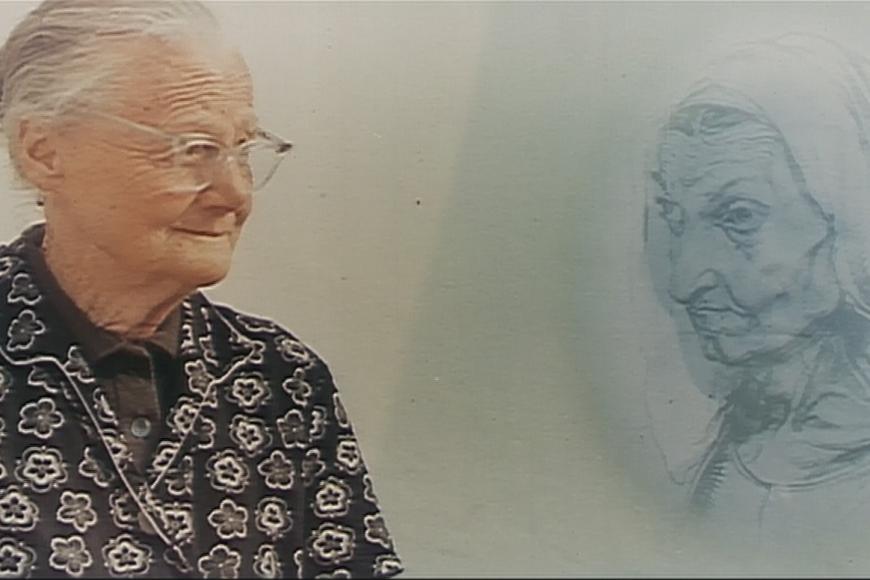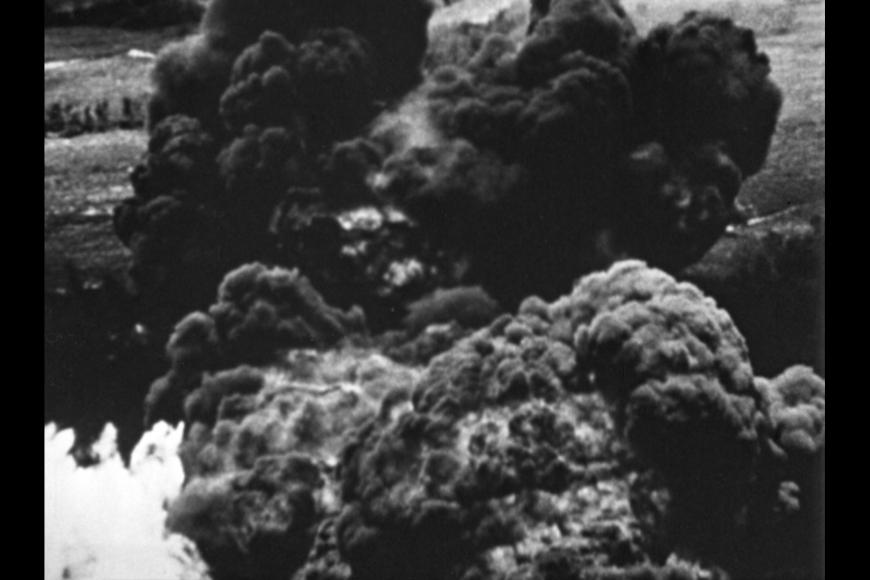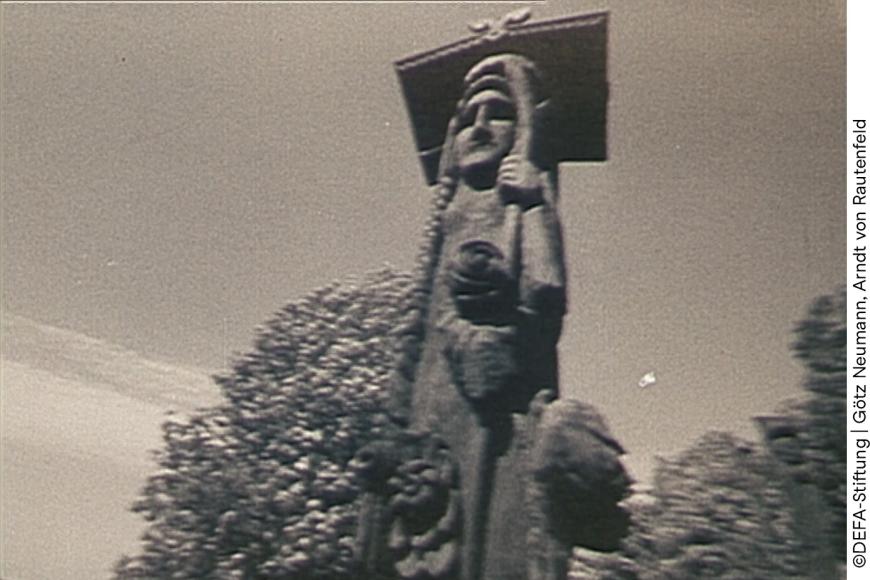
Ablinga
Nothing is left of the Lithuanian village of Ablinga. Destroyed by Wehrmacht soldiers in 1941, a forest of sculptures was erected in 1972 to commemorate those who once lived here. Larger than life, the carved wooden monuments rise to the sky. In national poet Justinas Marcinkevičius’s poem they wake up again, share some last secrets and become connecting links on a timeline that knows violence and dreams of peace. Dagnija Osite-Krüger’s montage is bold, playful and sometimes brutal, her concern credible and strong. Within a few minutes, “Ablinga” puts a spell on us, becoming a monument to German guilt and the memory of the murdered ones.

